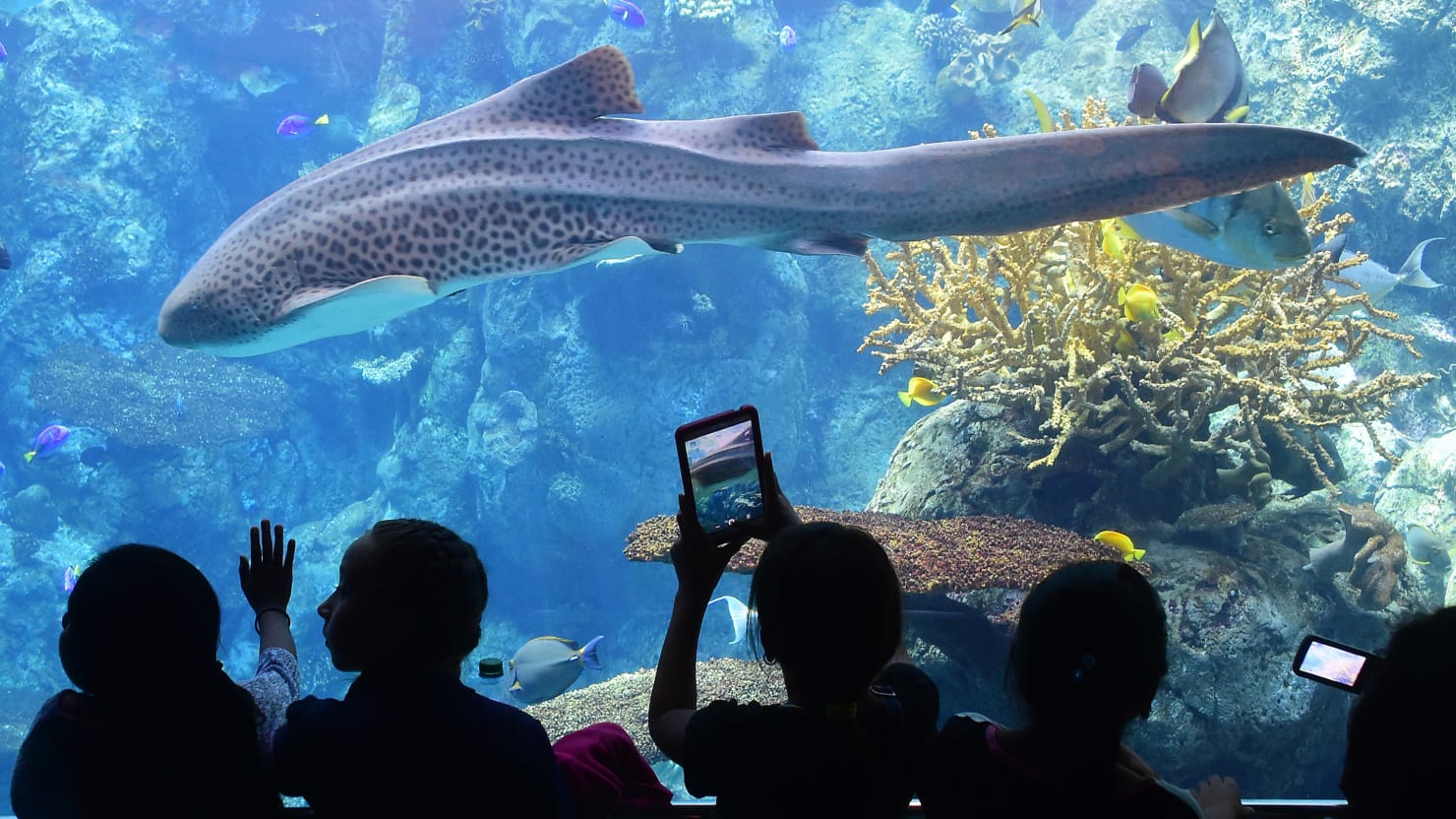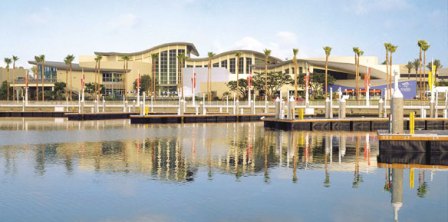The Aquarium of the Pacific is a popular tourist attraction in Long Beach, California. However, there has been an ongoing debate about its ethical practices. Some argue that the aquarium serves as a valuable educational tool, while others criticize the institution for keeping animals in captivity.
In this article, we will dive into the controversy surrounding the Aquarium of the Pacific. We will explore the arguments for and against the aquarium’s ethical practices, examining the impact it has on the animals and the community. Join us as we explore the complex relationship between aquariums and animal welfare.
Yes, the Aquarium of the Pacific is an ethical institution that follows animal welfare regulations and participates in conservation and research programs. The aquarium also educates visitors about the importance of ocean conservation and sustainable practices. Additionally, the aquarium has received accreditation from the Association of Zoos and Aquariums, which upholds high standards for animal care and welfare.

Is Aquarium of the Pacific Ethical?
Aquariums are popular tourist destinations that attract millions of visitors every year. These facilities provide a unique opportunity to view marine life up close and personal. However, many people question the ethics of keeping marine animals in captivity. The Aquarium of the Pacific is one of the most popular aquariums in the United States. In this article, we will explore the ethics of the Aquarium of the Pacific and whether or not it is an ethical institution.
History of the Aquarium of the Pacific
The Aquarium of the Pacific was opened in 1998 in Long Beach, California. It is a non-profit organization that is dedicated to conserving and protecting marine life. The aquarium has over 11,000 animals from over 500 different species.
The aquarium is also involved in a number of research and conservation projects. These projects include studying the effects of climate change on marine life, breeding endangered species, and protecting coral reefs.
Animal Welfare at the Aquarium of the Pacific
One of the biggest concerns people have about aquariums is the welfare of the animals. The Aquarium of the Pacific takes animal welfare very seriously. All of the animals at the aquarium are provided with high-quality care and are regularly monitored by veterinarians.
The aquarium also has a number of programs that are designed to promote animal welfare. These programs include animal enrichment activities, training programs, and research projects.
Educational Programs at the Aquarium of the Pacific
The Aquarium of the Pacific is committed to educating the public about marine life. The aquarium offers a number of educational programs for people of all ages. These programs include guided tours, lectures, and hands-on exhibits.
The aquarium also has a number of educational resources available online. These resources include lesson plans for teachers, interactive activities for children, and educational videos.
Conservation Efforts at the Aquarium of the Pacific
The Aquarium of the Pacific is actively involved in a number of conservation efforts. The aquarium has partnered with a number of organizations to protect marine life and their habitats.
One of the aquarium’s biggest conservation efforts is its Seafood for the Future program. This program is designed to promote sustainable seafood practices and reduce the impact of fishing on marine life.
Research Projects at the Aquarium of the Pacific
The Aquarium of the Pacific is involved in a number of research projects. These projects are designed to better understand marine life and the effects of human activities on marine ecosystems.
One of the aquarium’s most important research projects is the study of the effects of climate change on marine life. The aquarium is also involved in breeding endangered species and protecting coral reefs.
Benefits of Aquariums
Aquariums provide a number of benefits to society. They are important educational tools that allow people to learn about marine life and the importance of conservation. Aquariums also provide a unique opportunity for people to view marine life up close and personal.
Aquariums also play an important role in conservation efforts. They are involved in a number of research and conservation projects that are designed to protect marine life and their habitats.
Disadvantages of Aquariums
While aquariums provide a number of benefits, there are also some disadvantages to consider. One of the biggest disadvantages is the impact of captivity on marine animals. Some animals may become stressed or develop health problems as a result of captivity.
Another disadvantage is the impact of aquariums on wild populations. Some people argue that the capture of wild animals for aquariums can have a negative impact on wild populations.
Aquariums vs. the Wild
One of the biggest debates surrounding aquariums is whether or not they are a suitable alternative to the wild. While aquariums provide a unique opportunity to view marine life up close, they cannot replicate the complex ecosystems found in the wild.
In the wild, marine animals have the freedom to swim and explore their environment. They are also able to form complex social structures and engage in natural behaviors. In captivity, these freedoms are limited, which can have a negative impact on the animals.
The Bottom Line
So, is the Aquarium of the Pacific ethical? While there are certainly some challenges associated with keeping marine animals in captivity, the Aquarium of the Pacific is one of the most ethical institutions of its kind.
The aquarium is committed to animal welfare, conservation, and education. It is involved in a number of research projects that are designed to better understand marine life and the impact of human activities on marine ecosystems.
Overall, the Aquarium of the Pacific is a great place to learn about marine life and the importance of conservation. While it may not be a perfect solution to the challenges facing marine life, it is certainly a step in the right direction.
Frequently Asked Questions
The Aquarium of the Pacific is a popular tourist destination in Long Beach, California. However, some visitors may be concerned about the ethical practices of the aquarium. Here are some frequently asked questions and answers regarding the ethics of the Aquarium of the Pacific.
Is the Aquarium of the Pacific ethical in its treatment of animals?
The Aquarium of the Pacific is committed to providing the highest level of care to its animals. The aquarium’s animal care staff includes veterinarians, biologists, and other professionals who work to ensure that the animals are healthy, well-fed, and living in suitable habitats. The aquarium also participates in conservation efforts and collaborates with other organizations to protect marine life.
However, some critics argue that keeping animals in captivity is inherently unethical, regardless of the quality of care provided. They argue that animals have a right to freedom and that keeping them in tanks or enclosures is cruel and unnatural. While opinions on this issue may vary, the Aquarium of the Pacific maintains that it is committed to providing the best possible care for its animals.
Does the Aquarium of the Pacific participate in animal rescue and rehabilitation?
Yes, the Aquarium of the Pacific participates in animal rescue and rehabilitation efforts. The aquarium has a dedicated team of professionals who work to rescue and rehabilitate marine animals that are injured or in distress. In addition, the aquarium works with other organizations to support conservation efforts and protect marine life.
Some critics argue that the aquarium’s involvement in rescue and rehabilitation efforts is hypocritical, given that it also keeps animals in captivity. However, the aquarium maintains that its rescue and rehabilitation efforts are an important part of its mission to protect marine life and educate the public about the importance of conservation.
Does the Aquarium of the Pacific engage in sustainable practices?
Yes, the Aquarium of the Pacific is committed to sustainable practices. The aquarium has implemented a number of measures to reduce its environmental impact, including using energy-efficient lighting, reducing water consumption, and implementing a recycling program. In addition, the aquarium promotes sustainable seafood practices and works to educate the public about the importance of conservation.
Some critics argue that the aquarium’s focus on sustainability is not enough, and that the institution should be doing more to address larger environmental issues, such as climate change. However, the aquarium maintains that its sustainability efforts are an important part of its mission to protect marine life and promote environmental awareness.
Does the Aquarium of the Pacific engage in educational programs?
Yes, the Aquarium of the Pacific has a robust educational program that includes exhibits, workshops, and other activities. The aquarium aims to educate the public about the importance of marine life and conservation, and to inspire visitors to take action to protect the oceans.
However, some critics argue that the educational programs at the aquarium are biased in favor of captivity and do not provide a balanced perspective on the ethics of keeping animals in tanks or enclosures. They argue that the aquarium should do more to educate visitors about the potential negative impacts of captivity on animal welfare. The aquarium maintains that its educational programs are designed to provide a comprehensive understanding of marine life and conservation, and that they are based on scientific research and best practices in animal care.
The Aquarium of the Pacific has been the subject of some controversy related to its ethics. In 2012, the aquarium was criticized for its purchase of two beluga whales from a facility in Canada that was later accused of animal mistreatment. The aquarium maintained that it had conducted extensive research and due diligence before purchasing the whales, and that it was committed to providing them with the best possible care.
More recently, the aquarium has been criticized for its involvement in a project to capture and relocate a group of harbor seals in San Diego. Critics argue that the project is unnecessary and that it could harm the seals. The aquarium maintains that the project is necessary to protect the seals from the effects of human activity in the area, and that it is taking all necessary measures to ensure the safety and well-being of the seals.

Is fishkeeping ETHICAL?
In conclusion, the question of whether the Aquarium of the Pacific is ethical is not a simple one to answer. On one hand, the aquarium provides a valuable educational experience for visitors and is actively involved in conservation efforts. On the other hand, there are concerns about the welfare of the animals in captivity and the impact of removing them from their natural habitats.
Despite these concerns, it is clear that the Aquarium of the Pacific is making an effort to prioritize animal welfare and conservation. The aquarium’s involvement in breeding programs and research initiatives is evidence of this commitment. Additionally, the aquarium has made efforts to improve the living conditions of the animals and provide them with enrichment activities.
Ultimately, the decision of whether or not to support the Aquarium of the Pacific is a personal one. It is up to each individual to weigh the pros and cons and make an informed decision. However, it is important to remember that the aquarium plays an important role in educating the public about the ocean and its inhabitants, and that we all have a responsibility to protect and preserve these precious resources for future generations.
